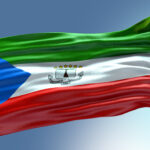OPEC using the last arrows in its quiver to try to move oil prices: words
Prior to November 2014, OPEC acted as the swing producer, raising or lowering production in order to send prices one way or another. Since making the decision to focus on market share instead of oil prices, the group has lost its control over prices for the most part, but OPEC continues to try and send prices higher with words rather than action.
“It baffles me that people still take those statements seriously,” Tom Pugh, a commodities analyst at Capital Economics told The Wall Street Journal following comments from Venezuelan President Nicholas Maduro said OPEC was close to closing an output deal. “There’s never any detail, never any confirmation and it’s always the same characters.”
International crude oil benchmark Brent is up over $1.50 since Monday on hopes that OPEC might come to an agreement that stabilizes prices. It is difficult to take the talk seriously, however, as past talks to cap production failed to generate any definitive results.
“You have to take it seriously when big producers talk of production cuts, so that’s why prices shoot up initially,” said Rob Thummel, portfolio manager at Tortoise Capital Advisors, which manages $15 billion in energy assets. “But investors quickly realize that this is just talk and no action and those rallies fizzle out quickly.”
The group plans to hold a meeting in Algiers next week to discuss the state of the market, but the meeting will be informal, meaning the group will not make a decision on its course of action. Again, this could just be talk, unfortunately.
“OPEC has to do that to make sure prices don’t fall to a certain level or rise to a certain level they don’t like and recently we have seen a lot of that,“ said a senior OPEC official who believes a deal will eventually happen. “OPEC has to talk and talk.”






